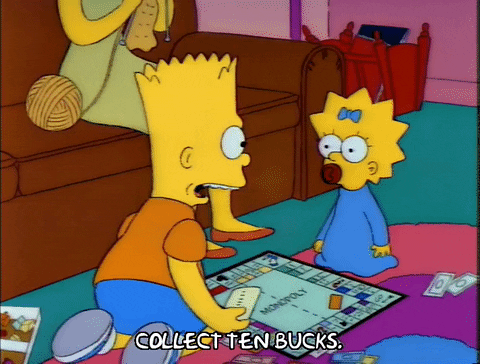Hey 👋
Hope you’re having a great week.
Welcome to the mesha tribe—a biweekly newsletter by mesha, an exclusive social community that lets you chat with friends, discover stocks and participate in challenges all on one platform.
Sounds good? Sign up below 👇
Awesome. Let’s go!
The Big Story
FTX US, the American affiliate of crypto exchange FTX, is starting a new gaming unit in hopes of encouraging game publishers to embrace digital currencies.
Dubbed FTX Gaming, the unit will reportedly function as a “crypto as a service” platform, allowing game publishers to launch tokens and provide support for in-game NFTs. The company has already started hiring a fully-remote team earlier this month, posting vacancies for software engineers with experience developing in Unity.


The news isn't surprising as the company had made its decision known back in November when it announced a $100 million blockchain gaming fund with Lightspeed Venture Partners and Solana Ventures that focused on investing in startups integrating Solana blockchain into video games.
Rise of play-to-earn gaming
While the play-to-earn model in the gaming industry existed for a while, it took the crypto world by storm after the launch of Axie Infinity, a Pokémon-style monster-battling game launched in 2018. The game grew especially popular in South Asian nations such as Phillippines and Indonesia, where people relied on it to support their families amid the pandemic. Witnessing its massive popularity, other players entered the market. As of January 2022, there are around 398 active blockchain games—a 92% growth since last year.
What made Axie stand out among its competitors is its significant earning potential. It allows users to trade and sell in-game items with other cryptocurrencies, and by extension, fiat currencies. It now has over 2.8 million daily users and a total trading volume of $3.8 billion.
But there's a catch: it isn’t free.
To get started, you need three Axie NFTs—each of which can cost hundreds of dollars. This has created an imploding micro-economy, where players loan access to their Axie’s to earn passive income. It's this exploitative, money-focused nature of the model that's turning many proponents of NFTs and crypto against this specific use case. In addition, recent frauds, scams, and hacks surrounding NFTs and crypto have made people question whether such play-to-earn models are a valid revenue stream or house of cards fuelled by hype and price speculation.
"If Axie wants to survive the next market crash, they will need to build some real-world utility into their game that does not depend on the mood of the markets," said Jonathan Teplitsky, Director of Community Growth at blockchain firm Horizon Labs.
Looking forward
For FTX US, this is another attempt to expand beyond its crypto-trading roots and make itself relevant in the mainstream cultural sphere. The crypto exchange was also responsible for the Coachella festival's recent launch of its NFT marketplace, where people could own lifetime festival passes, unlock unique on-site experiences, physical items, and digital collectibles as NFTs.
While it's still unclear whether such blockchain-based games can maintain their runaway popularity, analysts like Nigel Carlos predict that the trend is only going to grow in the medium-to-long term as they offer players "the opportunity to experience success, mastery, and dominance."
Share what you learn 🤝
If you found this newsletter insightful, share it with your friends and colleagues and let us know what you think. Once again, thank you for reading.
We, at Mesha, believe in democratizing finance. Join us and be a part of a community that helps you to take your net worth #ToTheMoon🚀







